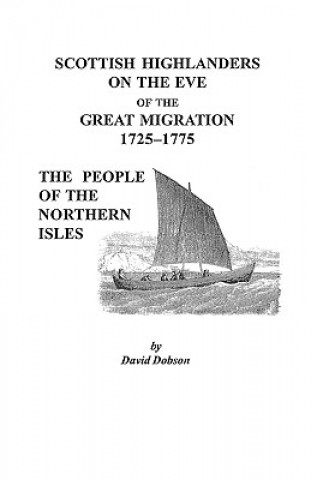
Kod: 04164408
Scottish Highlanders on the Eve of the Great Migration, 1725-1775
Autor Dobson
In 2005 Clearfield Company launched a new series of books by David Dobson that were designed to identify the origins of Scottish Highlanders who traveled to America prior to the Great Highland Migration that began in the 1730s and ... więcej
- Język:
 Angielski
Angielski - Oprawa: Miękka
- Liczba stron: 116
Wydawca: Clearfield, 2009
- Więcej informacji o książce

Zobacz książki o podobnej tematyce
-

Body Style
832.29 zł
Podaruj tę książkę jeszcze dziś
- Zamów książkę i wybierz "Wyślij jako prezent".
- Natychmiast wyślemy Ci bon podarunkowy, który możesz przekazać adresatowi prezentu.
- Książka zostanie wysłana do adresata, a Ty o nic nie musisz się martwić.
Więcej informacji o Scottish Highlanders on the Eve of the Great Migration, 1725-1775
Za ten zakup dostaniesz 62 punkty
 Opis
Opis
In 2005 Clearfield Company launched a new series of books by David Dobson that were designed to identify the origins of Scottish Highlanders who traveled to America prior to the Great Highland Migration that began in the 1730s and intensified thereafter. The first four volumes cover Scottish Highlanders from Argyll, Perthshire, Inverness, and the Northern Highlands. This fifth volume in the series pertains to the Northern Isles, commonly known as the Orkney Islands and the Shetland Islands. Much of the Highland emigration was directly related to a breakdown in social and economic institutions. Under the pressures of the commercial and industrial revolutions of the 17th and 18th centuries, Highland chieftains abandoned their patriarchal role in favor of becoming capitalist landlords. By raising farm rents to the breaking point, the chiefs left the social fabric of the Scottish Highlands in tatters. Accordingly, voluntary emigration by Gaelic-speaking Highlanders began in the 1730s. The social breakdown was intensified by the failure of the Jacobite cause in 1745, followed by the British military occupation and repression in the Highlands in the aftermath of the Battle of Culloden. In 1746, the British government dispatched about 1,000 Highland Jacobite prisoners of war to the colonies as indentured servants. Later, during the Seven YearsGÇÖ War of 1756GÇô1763, Highland regiments recruited in the service of the British crown chose to settle in Canada and America rather than return to Scotland. Once in North America, the Highlanders tended to be clannish and moved in extended family groups, unlike immigrants from the Lowlands who moved as individuals or in groups of a few families. The Gaelic-speaking Highlanders tended to settle on the North American frontier, whereas the Lowlanders merged with the English on the coast. Highlanders seem to have established GÇŁbeachheads,GÇ? and their kin subsequently followed. The best example of this pattern is in North Carolina where they first arrived in 1739 and moved to the Piedmont, to be followed by others for more than a century. Another factor that distinguishes research in Highland genealogy is the availability of pertinent records. Scottish genealogical research is generally based on the parish registers of the Church of Scotland, which provide information on baptisms and marriages. In the Scottish Lowlands, such records can date back to the mid-16th century, but Highland records generally start much later. Americans seeking their Highland roots face the problem that there are few, if any, church records available that pre-date the American Revolution. In the absence of Church of Scotland records, the researcher must turn to a miscellany of other records, such as court records, estate papers, sasines, gravestone inscriptions, burgess rolls, port books, services of heirs, wills and testaments, and especially rent rolls. (Some rent rolls even pre-date parish registers.) This series, therefore, is designed to identify the kinds of records that are available in the absence of parish registers and to supplement the church registers when they are available. The Northern Isles were once isolated on the northwest fringes of Europe; however, as trans-Atlantic trade expanded, they found themselves astride a major sea route between North America and northern Europe. Stromness in the Orkneys became the first or last port of call for many vessels crossing the Atlantic; for example, the vessels of the Hudson Bay Company from the late 17th-century traveled from Stromness to North America. For most Orkney emigrants, the motivating factors were poverty and lack of opportunity. Also noteworthy is that, unlike the other Highlanders, the Northern Islanders were of Scandinavian, not Celtic, origin (with an element of Lowland Scots). While this volume is not a comprehensive directo
 Szczegóły książki
Szczegóły książki
Kategoria Książki po angielsku Humanities History History: specific events & topics
107.21 zł
- Pełny tytuł: Scottish Highlanders on the Eve of the Great Migration, 1725-1775
- Podtytuł: The People of the Northern Isles
- Autor: Dobson
- Język:
 Angielski
Angielski - Oprawa: Miękka
- Liczba stron: 116
- EAN: 9780806353791
- ISBN: 0806353791
- ID: 04164408
- Wydawca: Clearfield
- Waga: 154 g
- Wymiary: 146 × 220 × 7 mm
- Data wydania: 01. June 2009
Ulubione w innej kategorii
-

Man's Search for Meaning
31.55 zł -3 % -

Women, Race & Class
47.23 zł -14 % -

Pianist
48.04 zł -22 % -

Out Of Place
52.19 zł -23 % -
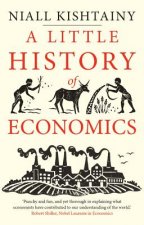
Little History of Economics
65.84 zł -4 % -
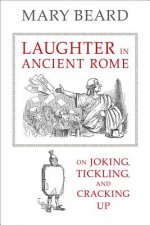
Laughter in Ancient Rome
86.38 zł -11 % -

Civilization and Capitalism, 15th-18th Century
281.71 zł -

Armies of Medieval Burgundy 1364-1477
67.86 zł -15 % -

Night
42.88 zł -23 % -

Society of the Spectacle
50.16 zł -

Imperialism: The Highest Stage of Capitalism
28.41 zł -22 % -

Man's Search For Meaning
70.70 zł -23 % -

Homo Deus
47.23 zł -31 % -
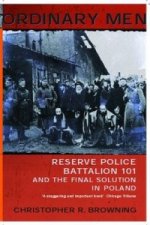
Ordinary Men
52.59 zł -15 % -

Black Earth
61.49 zł -15 % -

The Complete MAUS
79.29 zł -14 % -

The Rape of Nanking
85.97 zł -5 % -

Madness and Civilization
81.82 zł -11 % -

Conquerors
54.31 zł -15 % -

Stoned
47.53 zł -23 % -

Twelve Years a Slave
15.36 zł -23 % -

At Home
52.19 zł -23 % -
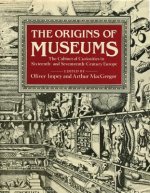
Origins of Museums
290.10 zł -7 % -

Measure of a Man
45 zł -26 % -

Delirious New York
146.16 zł -5 % -

Eichmann in Jerusalem
52.59 zł -15 % -

Mein Kampf - The Ford Translation
173.07 zł -

Bloodlands
43.59 zł -31 % -

Guns, Germs and Steel
61.49 zł -15 % -

Cold War Submarines
179.44 zł -5 % -

Fall of Public Man
70.70 zł -23 % -

Che Guevara
93.56 zł -23 % -

Dancing In The Streets
52.19 zł -23 % -

Fix the Pumps
73.73 zł -4 % -

Blue
160.12 zł -5 % -

Revolutionary Yiddishland
57.95 zł -14 % -

Commandant Of Auschwitz
52.19 zł -23 % -

Jewish State
49.66 zł -4 % -

Eichmann in Jerusalem
77.88 zł -5 % -

Reflections on the Revolution in France
42.88 zł -23 % -

Wall Street and the Bolshevik Revolution
61.39 zł -23 % -

Corgi Toys
78.08 zł -11 % -

Night
47.53 zł -23 % -
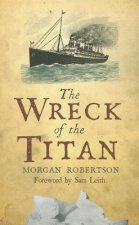
Wreck of the Titan
65.64 zł -5 % -

McMafia
52.19 zł -23 % -

Intimate History of Humanity
61.39 zł -23 % -
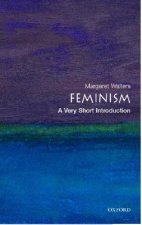
Feminism: A Very Short Introduction
42.88 zł -23 % -
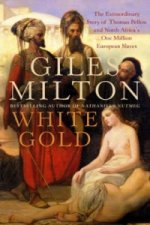
White Gold
61.39 zł -23 % -

Twelve Who Ruled
109.84 zł -5 %
zadowolonych klientów
Od roku 2008 obsłużyliśmy wielu miłośników książek, ale dla nas każdy był tym wyjątkowym.
Copyright! ©2008-24 libristo.pl Wszelkie prawa zastrzeżonePrywatnieCookies



 21 milionów książek
21 milionów książek Dostawa 10.99 zł
Dostawa 10.99 zł (32) 444 93 66 (8-15.30h)
(32) 444 93 66 (8-15.30h)